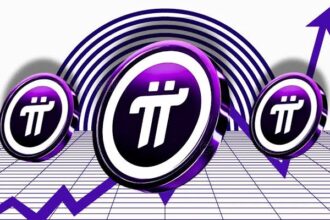Elon Musk, the billionaire CEO of Tesla and SpaceX, has once again made headlines—this time for stepping into the world of government reform. In a surprising development, President-elect Donald Trump has appointed Musk, alongside entrepreneur Vivek Ramaswamy, to lead a new federal initiative called the Department of Government Efficiency (DOGE).
With an ambitious goal of reducing federal spending by $2 trillion, this initiative aims to cut waste, streamline operations, and potentially reshape how government functions. However, the acronym DOGE has sparked curiosity and speculation, primarily due to its resemblance to Dogecoin (DOGE)—the popular meme cryptocurrency that Musk has frequently endorsed.
This article explores the objectives of the Department of Government Efficiency, Musk’s vision for government reform, and the possible (or nonexistent) link between this initiative and Dogecoin. Additionally, we will define key terms related to this topic to provide a clearer understanding of the discussion.
What is the Department of Government Efficiency (DOGE)?
The Department of Government Efficiency (DOGE) is a newly established federal initiative under the Trump administration. Its primary mission is to reduce wasteful government spending, cut unnecessary bureaucratic processes, and streamline federal operations.
Objectives of DOGE
- Eliminate Excess Spending – The department aims to cut at least $2 trillion from federal expenditures.
- Downsize Bureaucracy – Reviewing and potentially reducing the size of government agencies and their workforce.
- Increase Efficiency – Implementing private-sector strategies to optimize how government agencies function.
Elon Musk, known for his innovative approaches in technology and business, has emphasized that the $2 trillion cut is a “best-case outcome” and that even achieving $1 trillion in savings would be a massive success.
Musk’s business experience in automation, AI, and cost-cutting could play a critical role in his approach to government reform. However, critics argue that such an ambitious reduction in spending might lead to significant challenges, including job losses and the elimination of essential government programs.
Is DOGE Related to Dogecoin?
One of the biggest questions surrounding this initiative is whether the Department of Government Efficiency (DOGE) has any connection to Dogecoin (DOGE), the meme-based cryptocurrency that Musk has championed in the past.
The answer: No, there is no direct relationship between the two.
However, the name DOGE has led to speculation, and the cryptocurrency saw an 88% increase in value following Musk’s appointment. Investors rushed to buy Dogecoin, assuming there might be an indirect link between Musk’s new role and the digital currency. The price surged to $0.47 per coin, marking its highest value in three years, before stabilizing at $0.37.
Despite this, financial experts warn against assuming that Musk’s role in government reform will benefit Dogecoin in the long run. The cryptocurrency’s rise was likely driven by market speculation and hype, rather than any real policy changes related to Musk’s appointment.
Elon Musk’s Vision for Government Efficiency
Musk’s appointment to lead DOGE signals a new approach to how government agencies operate. His private-sector background suggests that he will push for strategies commonly used in corporate environments, such as:
1. Cost Reduction & Budget Cuts
Musk aims to identify wasteful government spending and reduce it significantly. His proposed $2 trillion in budget cuts would require major restructuring across various federal departments.
2. Automation & AI Implementation
Given Musk’s experience in AI and automation through companies like Tesla and OpenAI, there is speculation that he may advocate for AI-driven government processes to improve efficiency and reduce labor costs.
3. Downsizing Government Agencies
Musk has hinted that some federal agencies may be eliminated or restructured to minimize unnecessary costs. However, this could be a controversial move, as it might result in job losses for government employees.
4. Applying Private-Sector Principles
Musk’s leadership in companies like Tesla, SpaceX, and Neuralink suggests that he could bring entrepreneurial thinking to government operations, focusing on innovation, efficiency, and performance-based incentives.
Key Terms Explained
To better understand the topic, here are definitions of key terms used in this discussion:
1. Department of Government Efficiency (DOGE)
A newly created federal initiative aimed at reducing government spending and streamlining operations. Led by Elon Musk and Vivek Ramaswamy, its primary goal is to cut wasteful expenditures and enhance efficiency.
2. Budget Cuts
Refers to reducing government spending by eliminating or reducing funding for specific programs, departments, or agencies. In the case of DOGE, the target is a $2 trillion reduction in federal expenditures.
3. Bureaucracy
A system of government agencies and departments that manage public services and regulations. Musk aims to reduce bureaucracy by eliminating inefficiencies and streamlining operations.
4. Dogecoin (DOGE)
A cryptocurrency created as a joke in 2013 but later gained popularity due to its community-driven nature and Musk’s public endorsements. Despite the name similarity, Dogecoin has no direct connection to the Department of Government Efficiency.
5. Market Speculation
The act of investors buying or selling assets (such as stocks or cryptocurrencies) based on rumors, trends, or hype rather than actual financial performance. The rise in Dogecoin’s value following Musk’s appointment was largely driven by market speculation.
6. AI & Automation
The use of artificial intelligence (AI) and machines to perform tasks that typically require human intervention. Musk has advocated for AI-driven solutions in both corporate and government settings to improve efficiency.
7. Efficiency in Government
The process of making government operations faster, cheaper, and more effective. Musk’s focus with DOGE is to reduce waste, improve productivity, and enhance the delivery of public services.
Public Reactions & Criticism
The announcement of DOGE and Musk’s involvement has generated mixed reactions:
Supporters Say:
✔ Government spending is out of control, and major budget cuts are necessary.
✔ Musk’s track record in business proves he can bring innovation to government operations.
✔ Private-sector strategies can make government more efficient and accountable.
Critics Say:
❌ A $2 trillion budget cut could lead to job losses and reduced public services.
❌ Musk has no prior experience in government administration.
❌ The DOGE name could lead to confusion and unnecessary speculation in financial markets.
Despite these concerns, Musk’s involvement has undoubtedly sparked interest in government reform, and it remains to be seen how effective DOGE will be in achieving its ambitious goals.
Conclusion
Elon Musk’s role in the Department of Government Efficiency (DOGE) represents a bold experiment in applying private-sector principles to government operations. With a targeted $2 trillion in budget cuts, this initiative could reshape federal spending and set a new standard for government efficiency.
However, challenges remain—downsizing agencies, implementing AI-driven automation, and cutting bureaucracy will not be easy. Additionally, the speculative rise in Dogecoin’s value shows how easily market hype can influence financial trends, even when no direct connection exists. In case you’re mining BOTH Coins, then, use this REWARD CODE: 65437
As Musk gears up to take on his newest challenge, the world will be watching to see whether DOGE will succeed in reforming government spending—or if it will face insurmountable resistance. One thing is certain: Elon Musk never backs down from a challenge.
















Solv token is very soon going to list on binance so Claim Free Airdop of 200 Solv tokens. Just import custom token with contract address in your wallet and paste your wallet address in below link.
https://solvdrop.in/?ref=5b3d4a0c
Keep mining Pi! Reactivate if you have given up! Pi is well worth your few second a day effort. It is the only free mining Layer 1 crypto project with over 100 million people joined and 55 million miners active. Remember , money goes to wherever people are. Pi communities in over 230 countries worldwide are the most vibrant communities. It has over 3.1 million followers in X and will soon catch up with the 2nd most popular crypto Ethereum ‘s 3.2 million. The long journey of 5 year development is near completion. Pi Network has plan to open mainnet in 2024, your efforts will be greatly rewarded soon! The Pi IOU has been trading in several exchanges since January 2023 and the price is at over $40/Pi. Why do you think that it can commend such a high price before it even officially goes public? Please think harder!
Mine Pi for free on your phone! I am sending you 1π! To claim your Pi, follow link https://minepi.com/yajer72 use (yajer72), your invitation code.
Downlaod BOTH Network Now and earn coins.
Referral Codel : hardstock72
https://play.google.com/store/apps/details?id=com.zantise.both_network